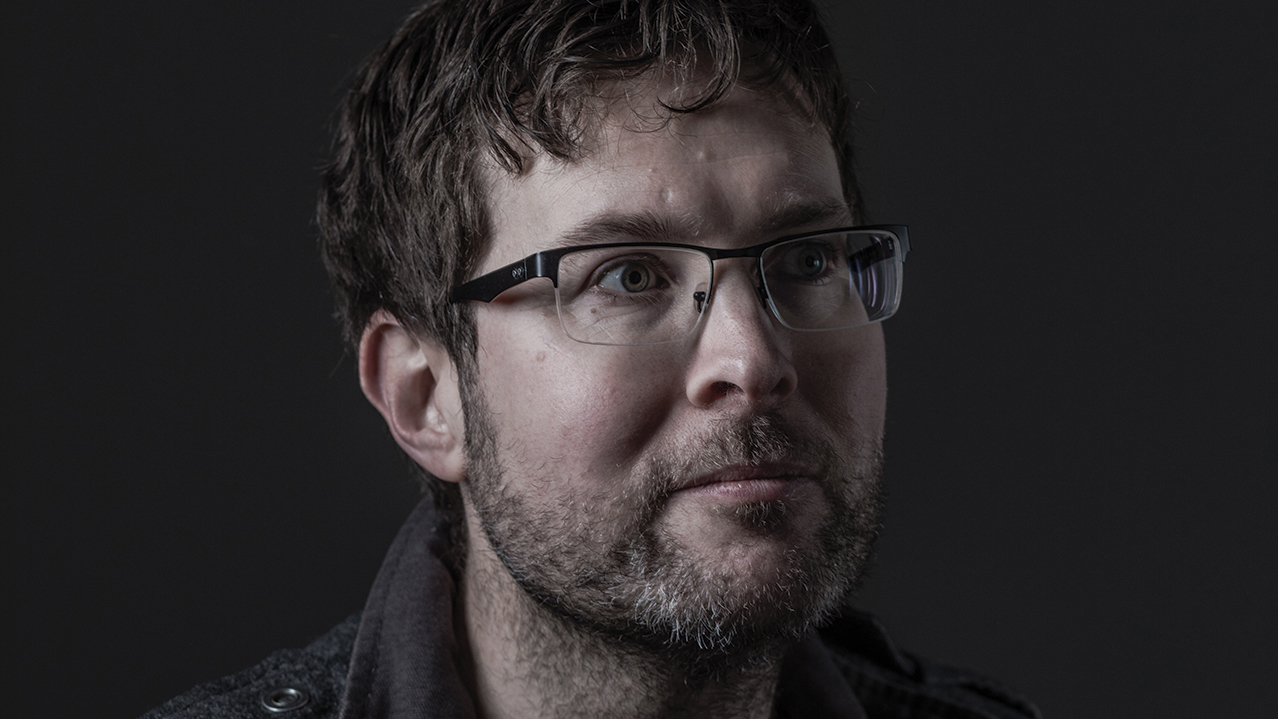The North Atlantic Oscillation (NAO) is a weather phenomenon in the North Atlantic Ocean involving fluctuations in atmospheric pressure. It’s also the name of one of the outfits helmed by Irish-born Edinburgh resident Sam Healy, the other being Sand. Both have new albums: a collection of expansive, cosmic and complex music by the former entitled Lightning Strikes The Library, out on Kscope; and a brand new second album of reflective electronica by Sand called A Sleeper, Just Awake, issued on Healy’s own label, Vineland.
Always busy, the musician and producer also has a day job making music for online video and short films, and doing computer graphics. He’s nothing if not prolific and sonically excessive. But then it’s in their flamboyant disregard for economy that artists reveal their true colours. “I think that’s true,” he says. “If you really ‘get’ an artist, you have to trust their judgement in including all this stuff.”
What are the essential differences between NAO and Sand?
When I write a piece, I know intuitively which one it belongs to, but it’s trickier to identify after the fact what makes a difference. The Sand stuff is more introspective, a bit less widescreen and poppy. Objectively, the only real difference is it’s basically all me doing the writing and recording for Sand, whereas Chris [Howard] and Ben [Martin] contribute to the NAO stuff.
Who is your most famous unexpected fan?
Al Murray, the ‘Pub Landlord’. Did you know he’s an accomplished drummer and prog fan? [We sure do – click right here! – Sub Ed] Someone sent him a link of our music and Al approved. The biggest honour, though, was Bob Mould from Sugar and Hüsker Dü. I did a cover version of a solo track of his [One Good Reason] and his bass player came across it and sent it to Bob, and he liked it so much we ended up being invited to support him.
Which prog act from the past do you most resemble?
Todd Rundgren would be a good example. He’s maybe a bit more playful than us, but if you listen to A Wizard, A True Star [1973], the level of inventiveness is stunning. Genesis are a good example of a band who do proggy stuff without having a conspicuously amazing player on guitar. Tony Banks and the much-maligned Mr Collins were the virtuosos. We’d be similar to that in that it’s Chris and Ben who do the heavy lifting in terms of the playing.
Your collaboration with sometime NAO member Bill Walsh (2015’s Sunrise) won Best Film at the Edinburgh International Film Festival Short Film Challenge. Was that your proudest achievement?
It was definitely a proud moment. It always gets me when someone not primed to like our music – not a muso, not a prog fan, not a rocker – says, “I really like your stuff.” That’s more of a boost than seasoned audiophiles getting it.
- Sand - A Sleeper, Just Awake album review
- North Atlantic Oscillation, Live In Manchester
- We have a leaf through Pub Landlord Al Murray's record collection
- The 70s Prog Quiz: how well do you know prog rock's classic decade?
What sort of films does your music naturally lend itself to?
Low-budget but high-concept, ambitious ones. Sci-fi that makes up for lack of budget and CGI with intelligence.
Like John Carpenter’s Dark Star?
Yes, Dark Star, The Andromeda Strain… More recently the Europa Report, 80s stuff… The most amusing use of my music on a soundtrack was for the American pilot of a network TV show about a blind female detective with clairvoyant powers. Not surprisingly the show didn’t make the cut.
NAO and Sand are quite ‘studiotronic’, and yet you’ve played with Porcupine Tree, Anathema, Blackfield and others. How does your intricate music translate from studio to stage?
We spent a long time trying to make it work with NAO – Sand hasn’t performed live yet. Recently we’ve been more live – more live keyboards, harmonies and percussion. I don’t really like it when a band that’s very ‘studiotronic’, as you say, does a stripped-down performance of an album that you love, minus the beautiful details. I feel slightly cheated.
What’s the most extreme reaction you’ve had?
On the first night of a Steven Wilson tour, which at that time was the biggest venue we’d played, with maybe 1,500 people. We’d been used to small, sweaty venues. We finished the first song and there was a roar we didn’t recognise, and it took us a few seconds to realise it was the crowd applauding – we didn’t realise that’s what that many people applauding sounds like!
Reviews of your work are OTT: “dark, foreboding tones” and “blissed-out, serotonin-fuelled pastoral sweeps”. Journalists do tend to get ‘sonic cathedral’ with you, don’t they?
It’s a little bit overblown. I prefer facts but there are no facts when you’re listening to music – it’s entirely subjective. But it can come across as parody. I liked what Guy Garvey on his 6 Music show said: “It’s the kind of music you’d want to play on your car stereo on an empty road with the window rolled down on a sunny Sunday afternoon.” I’m paraphrasing terribly, but along those lines.
Do you ever get stray admirers confusing you with NSRO (North Sea Radio Orchestra)?
No, but on the Amazon page for the first Sand album, there’s a bunch of one-star reviews and they’re one-star not because they hate the album but because there was a one-off country rock band in the early 70s called Sand. They bought my album thinking it was going to be that and in a blind fury posted reviews saying, “This isn’t the album I asked for!”
Were you tempted to make an early-70s country rock album?
I was, actually. Just to stick it to them.
NAO’s Lightning Strikes The Library and Sand’s A Sleeper, Just Awake, are out now on Kscope and Vineland.

